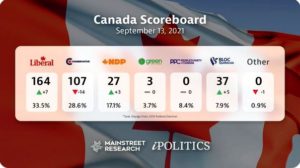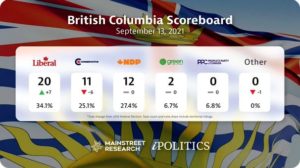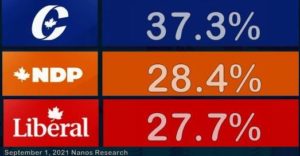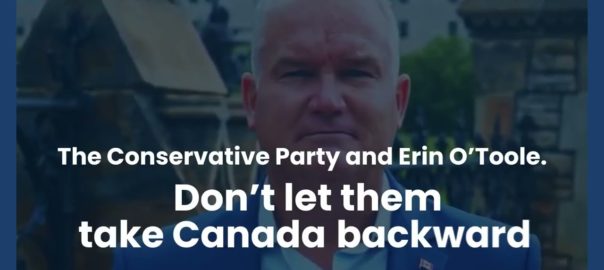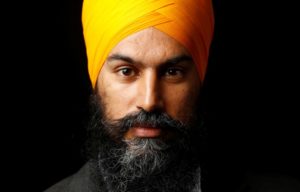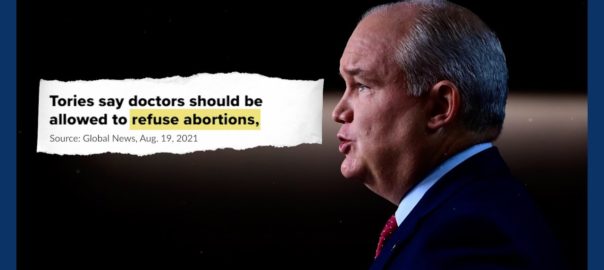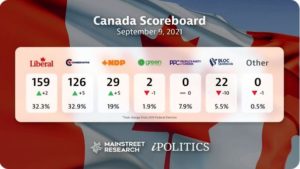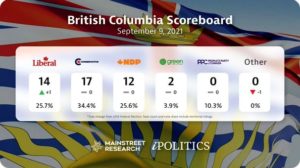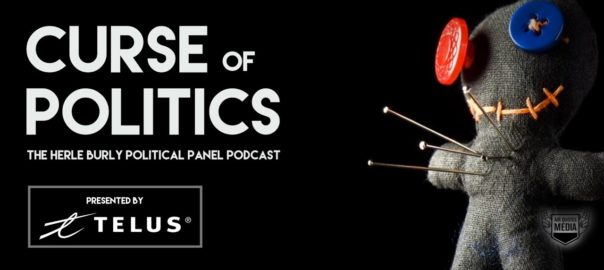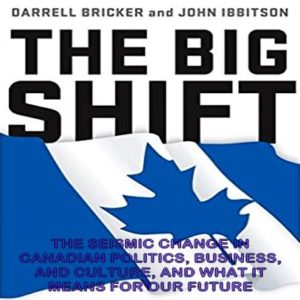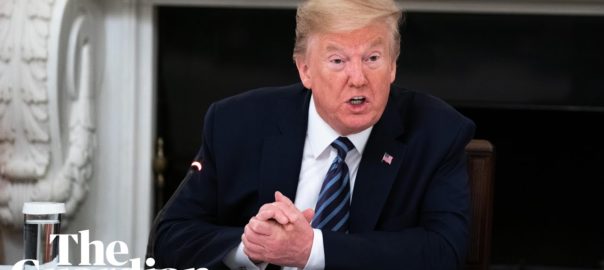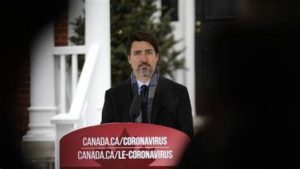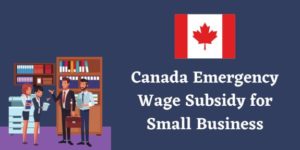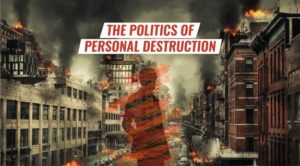
There he stood, morning in, morning out for a year. A whole year. Reassuring the nation that all would be fine. Standing in front of his Rideau Cottage home, his beard growing longer with each passing day, his wife herself, initially, a victim of COVID-19, leaving him to care for his children alone while his wife Sophie self-isolated, a father to his three children and Canada’s father in a time of despair.
On March 11, 2020, the World Heath Organization declared that the world was in the grip of a once-in-a-century pandemic that would kill millions, no vaccines yet existed to fight off this killer, and to protect us, lockdowns would be required that would keep us inside our homes for weeks and months on end.
Businesses across Canada were shuttered, no one went outside without wearing a mask — once a week shopping for necessities would be approved, but little else.
In addition to the health crisis that jeopardized our collective health, nations across the globe faced an economic crisis the likes of which we’d never known. On March 18, 2020, on the orders of British Columbia’s Public Health Officer, Dr. Bonnie Henry, the province declared a State of Emergency.

On March 16th, 2020, Prime Minister Justin Trudeau announced that until further notice, Canadian borders would be closed to foreign nationals — urging Canadians abroad to return home as soon as possible, given the ever-tighter travel restrictions countries around the world – including Canada – were imposing to curb the spread of the new coronavirus, stating that before the end of the month, the federal government would disallow the opportunity given Canadians to return home.
Canada was in a crisis, as the COVID-19 pandemic led to a dramatic loss of human life worldwide, presenting an unprecedented challenge to public health, food systems and the world of work, causing economic and social disruption, devastating the lives of millions of Canadians at risk of falling into poverty.
Prime Minister Justin Trudeau announces $82 billion rescue plan | March 18, 2020
The Liberal government and Justin Trudeau — working in concert with Health Minister Patti Hajdu and Minister of Public Services and Procurement, Anita Anand, among other Ministers — mounted a massive and efficacious response to the pandemic, quarterbacking an unprecedented campaign against the threat of the virus and lockdowns that had shaken the economy, legislating a blitz of new and necessary programmes designed to keep Canadians safe, and economically whole.
March 15, 2020. Ottawa commits $2 billion to buy supplies, purchasing tens of millions of masks, and thousands of testing kits and ventilators from Canadian-based manufacturers, who shifted production to make the badly needed equipment and supplies.
March 16, 2020. Canada announces plans to close the border to international travel. The Canada-U.S. border closes to non-essential travel, with exceptions for truckers and a few other groups. A mandatory self-quarantine for travelers. Anyone returning to Canada legally required to self-quarantine for 14 days.
March 18, 2020. Government announces an aid package providing economic benefits for Canadians affected by COVID-19, the programme fleshed out in subsequent days & benefits increased.
March 25, 2020. The Canada Emergency Response Benefit (CERB) announced, providing $500 per week in financial support to employed and self-employed Canadians affected by COVID-19. Minimum Employment Insurance benefit increased to $500 weekly. Canada Recovery Sickness Benefit of $500 per week for workers who’d contracted COVID-19. Canada Recovery Caregiving Benefit of $500 per week to support families with children six years of age, or younger, and to support low-income workers and families. Mortgage Deferral Payment provided to homeowners facing financial hardship. Old Age Security pensioners receive one-time $500 tax-free benefit.

March 27, 2020. For businesses in Canada: The Canada Emergency Wage Subsidy provided to employers, to keep employees on payroll during the COVID-19 pandemic. The Canada Emergency Rent Subsidy to provide rent / mortgage subsidy to qualifying businesses, including charities and non-profits. Relief measures for Indigenous businesses, providing $306.8 million to small and medium-sized Indigenous businesses, and to support Aboriginal Financial Institutions that offer financing to these important businesses.
August 31, 2020. Justin Trudeau’s Liberal government signs contracts with Pfizer-BioNTech and Moderna to procure more than 100 million doses of their experimental COVID‑19 vaccines, signing contracts with Johnson & Johnson (Janssen), Novavax and AstraZenica/Covashield for 80 million more doses. Prime Minister Justin Trudeau also announces funding to establish a new biomanufacturing facility at the Human Health Therapeutics Research Centre in Montréal, and two other biomanufacturing facilities, in western Canada and Ontario, approved by the National Research Council of Canada to increase vaccine manufacturing of up to four million doses per month, to ensure Canada’s ability to produce sufficient vaccine doses to meet our country’s need.
The federal programmes and actions above barely scratch the surface of the response by Justin Trudeau’s Liberal government — which set out to provide health, social and economic support for every Canadian, and support for every sector of the economy. The critically important programmes enacted by the Justin Trudeau-led Liberal government were and are unprecedented anywhere across the globe.
Little wonder, then, that going into this election, Justin Trudeau’s personal approval rating was in the high 80s, and support for his government at 45%.
The rhetoric you’re likely to hear from an Erin O’Toole Conservative government
Ask yourself: given the chaos Canadians have witnessed in the anti-science Conservative government-led provinces of Alberta, Saskatchewan, Manitoba and Ontario, what is the potential that an Erin O’Toole-led government would have responded to this once-in-a-century pandemic any better than we’ve witnessed in those four anti-science Conservative provinces — where each of their leaders have record low approval ratings — or we saw in Donald Trump’s COVID denialism (and we witness in today’s federal Conservative party Trump acoloyte caucus)?
“It’ll just disappear one day. It’ll go away like all things go away,” Trump said. “I feel about vaccines like I feel about tests. COVID will go away without a vaccine, just go away, and we’re not going to see it again. It’ll be gone, like it was never here. You have my word on it.”
The 44th Canadian general election is the most volatile election in our nation’s history. Both Conservative Party leader Erin O’Toole, and New Democratic Party leader Jagmeet Singh have together employed American, Republican-style politicking, unprecedented in Canadian history that a right wing and (allegedly) left wing party would collude on their campaign messaging to “gain power” …
“Justin Trudeau is a liar,” say O’Toole and Singh. “He’s not done a damn thing for you. He’s a smarmy, self-righteous, virtue signalling fraud who trots out the same — still unfulfilled — campaign promises he did in 2015 and 2019. He can’t be trusted, he’s not on your side. Vote for me. I’ve got your back. Throw that Justin Trudeau onto the scrap heap of history. He’s done. It’s time for a new day.”
Don’t you believe any of the malarkey above that’s being spewed out by Erin O’Toole and Jagmeet Singh. You know better. You’ve witnessed Justin Trudeau advocate for us, and over the course of these past 19 months, Mr. Trudeau — and his incredibly competent and hard-working, principled Ministers of the Crown — have sacrificed for us, and provided for us each and every day, keeping us all safe.

Please don’t allow Erin O’Toole’s and Jagmeet Singh’s cynical politics of personal destruction cause Canadians to indulge a sense of collective amnesia, and not recognize that, indeed, Prime Minister Justin Trudeau is a Canadian national hero. We would not have pulled through the worst of the COVID-19 pandemic were any other Canadian leader in place. Justin Trudeau as Canadian Prime Minister remains critical to our national health, our ability to prevail in this pandemic, and to our national identity as Canadians working in common cause for the benefit of all.
Quite simply — and you know it’s true — there is no other Canadian political leader (and certainly not Erin O’Toole or Jagmeet Singh) capable of returning each one of us to the lives we led prior to the pandemic, ever more emboldened that we found the strength and the wherewithall to make it through this tragedy, and come out the other end all the better, more fulfilled personally and economically, with a greater wealth of spirit, and a sense of joy to inform all of our days yet to come.
